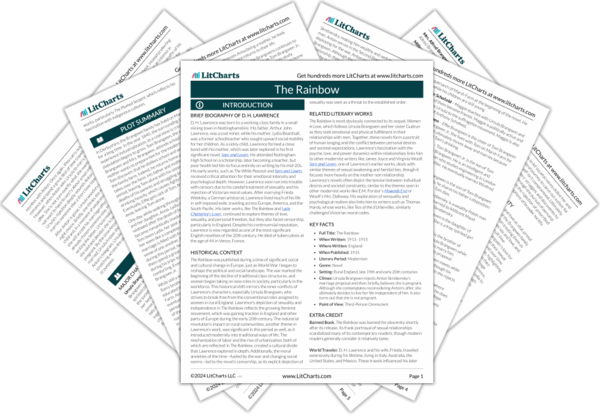The academic world offers Ursula a glimpse into a broader, more liberated existence, one that contrasts sharply with her home life. Yet, her rebellion against authority in the classroom shows that while she craves knowledge, she cannot fully submit to the structures that provide it. This duality, between the joy of learning and the struggle against imposed rules, captures Ursula’s larger battle between conformity and independence, which will stay with her throughout the rest of the novel.
